Monday 1st July
We were all picked up from the Ljubljana and travelled to Lake Bled, which was very beautiful, but unfortunately also very wet.


We then travelled to the Ski Centre Planica and then took part in the first session.
Session 1 – Building group cohesion through cooperative learning, which was led by Javier Fernandez-Rio from UNIOVI Spain. This session encouraged students to get to know each other and feel comfortable in each other’s company whilst doing physical activities. It has been suggested that it could be used at the start of a school year so that the children in a class get to know each other and the teacher also gets to know the children. This activity was linked to Experiential Learning – Living the Curriculum, where the pre-service teachers engage in the activities that they might do with the children in schools, so that they can appreciate the impact and process.
Tuesday 2nd July
Project Meeting 1 – Walking to the first meeting allowed the group to marvel at the very brave ski jumpers who were practicing.
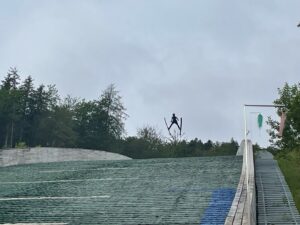
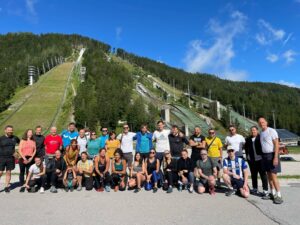
An overview of the project was provided by Mats as there were teachers in the group who were not fully aware of the process that the project had gone through, and it was important to share this with them.
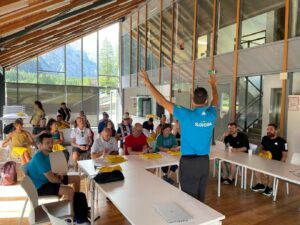
Session 2 was led by Bjørnar Johannessen, Sanna Ertresvåg and Stig Odde Roth, who are teachers from Haugerud School, Norway. Their session was held in the forest, using a star flower method and again was linked to Experiential Learning – Living the Curriculum; but focused on Slow outdoor life – empowering nature experiences that promote sustainable living, with the primary aim of being fully present and harmoniously connected with nature. It used narratives to encourage and appreciate building shelters for animals in the forest and experiencing quiet, tranquillity and the natural environment with our bare feet. This work links to the Norwegian curriculum.
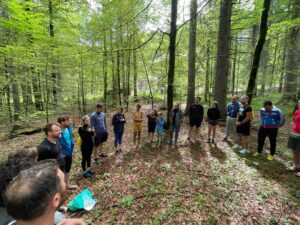

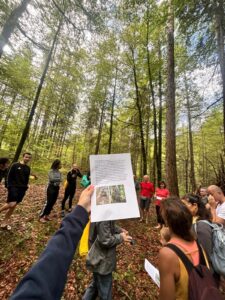
The group then had an opportunity to experience the Planica Zip Line, which starts on the platform of the top of the longest ski jump at Planica. Everyone enjoyed the experience and got to the bottom safely.
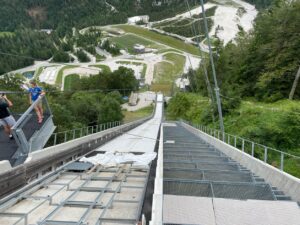

Session 3 focussed on Experimental pedagogies in PE teacher education using a Dance and Ball play love story. This session was led by Annika Eklund, Anders Svensson, Zana Salahaddin Bazaz and Izabela Seger, from Viksjöskolan School, Sweden. This session initially introduced some dance moves and then some bouncing of balls linked to the beat of the music. The ball was then integrated into the dance to synthesise both dance and ball play. The basis of this work is BRESS, which is a theoretical movement framework based on the work of Laban …
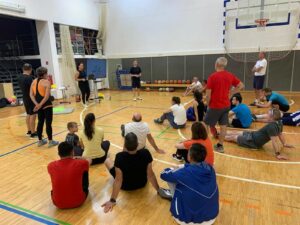
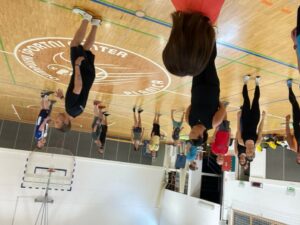
Project Meeting 2 allowed the group to consider all of the work packages of the project and highlight the remaining work that needed to be undertaken.
Some of the delegates took part in Disc Golf following this session whilst others went walking.
Wednesday 3rd July
Project Meeting 3 was led by Marina from the University of Limerick, and focused on the minipack progress and what tasks were needed to be completed by each team in relation to overviews of the minipacks, videos and testimonials, which will be hosted on the website. Clarification is required about funding the website post project and this is currently being considered. Further project tasks were also discussed
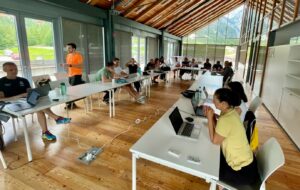
Session 4 – Integrated learning Experiences in Physical Education; was led by Diarmuid Crowley from Ireland. This was linked to experiential pedagogies where theory and practice are integrated. In Ireland the opportunity for an examination award is provided for children aged 17-19 years, in physical education. This requires a 50/50 content based on theory and practical. Diarmuid linked the learning of sprint starts with the theory of levers and Newton’s Laws.
Project Meeting 4 allowed the teams to work on Canva and their minipack website content.
Session 5 – Using technology in peer teaching, led by University of Ljubljana, focused on long jump and dance. This session used a dance game on a TV screen to engage us in a four-person group dance, which included reflection and working on improvement, but also targeted our enjoyment, cooperation and engagement. We then used technology to see how learning about long jump could be enhanced by the use of video examples and recordings, and peer learning. Discussion took place about the relevance and safety of using videos as well as the range of technology software that could support learning in PE.
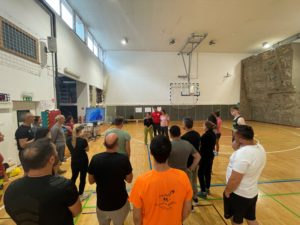
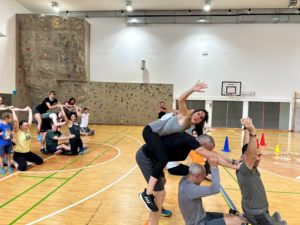
Session 6 – Building intercultural and social competencies through PE was led by Luxembourg. Biljana, Alahe and Zina provided an overview of the mini pack and then a range of activities were undertaken by the group that allowed an exploration of culture and competences in relation to pictures, music and dances. Reflections on how this could be used in other subjects to enhance learning and increase physical activity, were also considered.
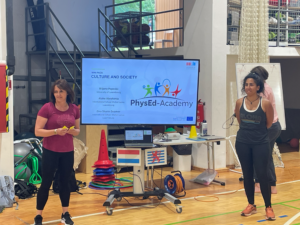
Thursday 4th July
The delegates were invited to talk a hike to the TV platform to get a great view of all the ski jumping slopes and then up the Tamar Valley to the Nadiza waterfall. This was a four-hour hike 11.3km with 560m of climbing. Thoroughly enjoyed by all of the group.

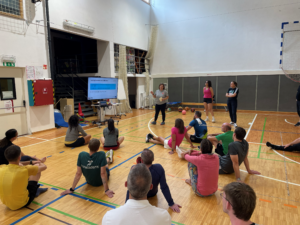
Session 7 was led by our Turkish colleagues, Deniz and Eslem, and looked at empowering PE teachers through action research to promote students active and healthy living awareness. A range of activities looking at heart rate and life related fitness, followed by a discussion on action research learning, took place.
Friday 5th July
The final project meeting took place in the morning and clear objectives were provided for the future of the project. Thanks were extended to Gregor and his team for hosting the workshop and providing a great range of activities. The group then depart for Lake Bohinj for rafting, before returning home. This was an excellent 7km rafting trip which was thoroughly enjoyed by the group.
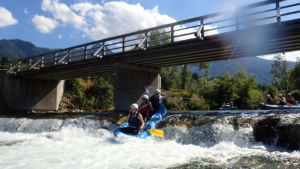
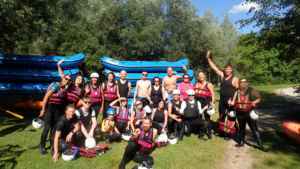

Disclaimer: Project is funded by the European Union. Views and opinions expressed are however those of the author(s) only and do not necessarily reflect those of the European Union or EACEA. Neither the European Union nor the granting authority can be held responsible for them.” (Project no: 101056095)